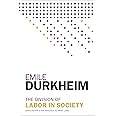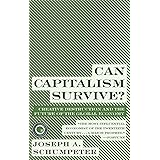
Enjoy fast, free delivery, exclusive deals, and award-winning movies & TV shows with Prime
Try Prime
and start saving today with fast, free delivery
Amazon Prime includes:
Fast, FREE Delivery is available to Prime members. To join, select "Try Amazon Prime and start saving today with Fast, FREE Delivery" below the Add to Cart button.
Amazon Prime members enjoy:- Cardmembers earn 5% Back at Amazon.com with a Prime Credit Card.
- Unlimited Free Two-Day Delivery
- Streaming of thousands of movies and TV shows with limited ads on Prime Video.
- A Kindle book to borrow for free each month - with no due dates
- Listen to over 2 million songs and hundreds of playlists
- Unlimited photo storage with anywhere access
Important: Your credit card will NOT be charged when you start your free trial or if you cancel during the trial period. If you're happy with Amazon Prime, do nothing. At the end of the free trial, your membership will automatically upgrade to a monthly membership.
Buy new:
-32% $14.89$14.89
Ships from: Amazon.com Sold by: Amazon.com
Save with Used - Good
$13.99$13.99
Ships from: Amazon Sold by: Christopher Collectibles

Download the free Kindle app and start reading Kindle books instantly on your smartphone, tablet, or computer - no Kindle device required.
Read instantly on your browser with Kindle for Web.
Using your mobile phone camera - scan the code below and download the Kindle app.

OK
The Protestant Ethic and the "Spirit" of Capitalism: and Other Writings (Penguin Twentieth-Century Classics) Paperback – April 1, 2002
Purchase options and add-ons
For more than seventy years, Penguin has been the leading publisher of classic literature in the English-speaking world. With more than 1,700 titles, Penguin Classics represents a global bookshelf of the best works throughout history and across genres and disciplines. Readers trust the series to provide authoritative texts enhanced by introductions and notes by distinguished scholars and contemporary authors, as well as up-to-date translations by award-winning translators.
- Print length392 pages
- LanguageEnglish
- PublisherPenguin Classics
- Publication dateApril 1, 2002
- Reading age18 years and up
- Dimensions7.75 x 5.07 x 0.84 inches
- ISBN-100140439218
- ISBN-13978-0140439212
The Amazon Book Review
Book recommendations, author interviews, editors' picks, and more. Read it now.
Frequently bought together

Similar items that may ship from close to you
Editorial Reviews
About the Author
Product details
- Publisher : Penguin Classics (April 1, 2002)
- Language : English
- Paperback : 392 pages
- ISBN-10 : 0140439218
- ISBN-13 : 978-0140439212
- Reading age : 18 years and up
- Item Weight : 10.6 ounces
- Dimensions : 7.75 x 5.07 x 0.84 inches
- Best Sellers Rank: #38,116 in Books (See Top 100 in Books)
- #27 in Sociology & Religion
- #36 in Church & State Religious Studies
- #131 in Philosophy of Ethics & Morality
- Customer Reviews:
About the author

Discover more of the author’s books, see similar authors, read author blogs and more
Customer reviews
Customer Reviews, including Product Star Ratings help customers to learn more about the product and decide whether it is the right product for them.
To calculate the overall star rating and percentage breakdown by star, we don’t use a simple average. Instead, our system considers things like how recent a review is and if the reviewer bought the item on Amazon. It also analyzed reviews to verify trustworthiness.
Learn more how customers reviews work on Amazon-
Top reviews
Top reviews from the United States
There was a problem filtering reviews right now. Please try again later.
It is amazing how this culture is evident in our lives today, even among those who are no longer Christians. Look at Buffet, he does not live ostentatiously, he creates and accumulates capital, he is still working at his advanced age, he works constantly, and he has given away his profits to charity. This is an almost perfect example of the protestant ethic. Look at Ted Turner's work and charity. Poor old Ted does not understand the forces of the culture that motivate him, but he is being carried along by the current that has been handed down to us by our forefathers. The same can be said for the Gates and their foundation, working to provide charity to the people of the earth. The same can be said for the Mellons, Carnieges, and others of thier ilk. Work hard, it is a calling, it is important to create wealth, it is good to create wealth, and then provide charity with that wealth. That is the ethic, and Weber tells us how it happened, and why it happened exclusively in America.
New Christian tenets inviting religious individuation and including highly compelling ideas and praxes such as predestination also manifest both a theological relativism as well as a spiritual angst, with both realities eventually wedded to the political economy of industry and enterprise as a surrogate Christian berufen, or spiritual "calling" in the world. This conjunction of derivative, often highly reactive "spirituality," its attendant anxieties, and the socio-economic outlets for neurotic religious foreboding and portent in industry and enterprise coalesced in a rationalization informed by efficiency and calculation, i.e., the hallmarks of capitalism, both then and now.
The prescience of this early 20th century view for today's Weltanschauung is striking, i.e., the neo-liberal agenda for unbridled market depredations in the Third World milieu--as the "natural" progression for an enterprise/industry "ethic" ("code" ?)supposedly divinely ordained--may then impose its will to power/capital anywhere it sends its latter-day Crusading military forces. Indeed, ultra-right hyper-religious Christian fundamentalists in the US have insinuated themselves into DC's business-as-usual quest of Empire, i.e., the Washington Consensus, informing its agenda in both overt K-Street style propaganda--to which the hopelessley naive willingly align themselves--as well as more "subtle" (to the degree that they are capable of this dynamic) inroads via local agencies, i.e., Church collectives.
may not buy Weber's thesis in part or in toto, but it is so carefully argued that dissent has to be very nuanced and scholarly to be persuasive. (An example of such creative dissent is Tawney's "Religion and the Rise of Capitalism").
This Edition contains a fairly good translation; its main weakness is the arrangement of notes (Editor's and Weber's) at the end of each chapter. Hard to find because tops of pages don't contain chapter titles. And the notes are an important part of the whole.
The book also contains several of Weber's rebuttals to some citicisms that he received. Since these critiques are not reprinted here, the rebuttals are not fully self-explanatory. Moreover, this section is not inspiring for another reason: the tone of academic petulance diminishes the image of a great scholar.
Top reviews from other countries
However, the Penguin edition falls short on a number of fronts. First of all is the lengthy introduction that becomes no more than a tedious chronology of the reception of Weber's work.
Then is the nature of the footnoting. Rather than using a more modern, kindle friendly method of footnoting, clicks of footnotes take you back and forth through the book, and the huge collection of footnotes really splits up the book, making it troublesome to read at times.
Penguin is a great publishing house, but this edition appears to be lazily composed, is not up to usual Penguin standards, and mars what is otherwise a true classic.
For Weber's work itself, 5 stars, but this edition only narrowly merits 3.
That said, Baehr's translation is not bad.












